How ‘Arrival’ Affirms a Christian Worldview
RWT editor and writer Gene Gosewehr, and Clear Lens founder and author Nate Sala, collaborate for this apologetics angled take on certain aspects of the critically praised ‘Arrival’.
Last week, RWT contributor Alexis Johnson provided a solid review of Denis Villeneuve’s Arrival. This is a film that is generating a lot of buzz, and for good reason. There are moments that arouse within many viewers a deep emotional response. And there are many things that, as we’ll describe below, speak to the undertones of a Christian worldview presented throughout the film. Due to the nature of this article, we’ll be spoiling the movie heavily from here on and jumping right into the meat of it.
Foreknowledge and Free Will – Nate
The brilliance of the heptapod language is in its circularity; that is, their language is a reflection of the flat, circular nature of time. At least, the nature of time according to the movie. Once Louise’s mind starts to change from interacting with the heptapod language, she begins to experience time travel. She sees and experiences the future as she simultaneously remains in her present. This raises an interesting question: If Louise can see the future, then isn’t the future determined? The theological ramifications of this question should be clear because foreknowledge is a divine trait. So perhaps the question should really be: If God can see the future then isn’t the future determined? The answer is no for a couple of reasons.
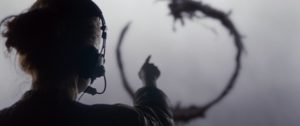 First, foreknowledge is just knowledge. If Gene were to know that, tomorrow at noon, Nate would rob a Wells Fargo, it does not follow at all that Gene forced Nate to rob the bank. Likewise, if Louise had foreknowledge that General Shang was going to attack the heptapods, it does not follow that Louise forced General Shang to do so. General Shang made that decision on his own. The same is true of God. God’s foreknowledge of future events does not compel folks to action. Their own choices compel their actions.
First, foreknowledge is just knowledge. If Gene were to know that, tomorrow at noon, Nate would rob a Wells Fargo, it does not follow at all that Gene forced Nate to rob the bank. Likewise, if Louise had foreknowledge that General Shang was going to attack the heptapods, it does not follow that Louise forced General Shang to do so. General Shang made that decision on his own. The same is true of God. God’s foreknowledge of future events does not compel folks to action. Their own choices compel their actions.
Second, one might argue: if God can have knowledge of the future with absolute certainty then the future cannot be any different, thus making it necessarily determined. But this is conflating certainty and necessity. God’s absolute certainty of a future event does not make that future event necessary. Again, foreknowledge is just knowledge. His foreknowledge of the event just means that God knows with absolute certainty that the future event will occur. Think of it this way, if Louise asked Ian to marry her at the end of the film and Ian declined, Louise’s foreknowledge would have always reflected that. Even if Ian had originally agreed and then, at some point during the wedding planning process, changed his mind and declined, Louise’s foreknowledge would have always reflected Ian’s change of mind. In this sense we see that Louise’s foreknowledge, in and of itself, is not coercive or compulsory. Ian is still deciding. Louise’s foreknowledge is simply knowledge. And so is God’s.
The Freedom to Choose – Gene
As the film begins to slowly reveal that what we’re being shown, the apparent flashbacks to Louise experiencing the birth and life of her daughter, are actually glimpses into the future, we begin to see Louise working through this realization in her own mind. She learns through this newly acquired foreknowledge that Ian will be the man she marries and with whom she has this child. We see her staring into the distance, and into his eyes, in wonderfully curious ways. These all serve as visual cues to what her future holds given certain choices. And that is the key; choice.
 In the big picture, Louise’s foreknowledge gives her the means to avoid a disastrous attack planned by the Chinese, and to make peace with the heptapods. On a personal level, she must decide whether to choose a path that results in painful death but is full of love, or a path without that specific death but without that love as well. The movie depicts this being an actual choice she can make, and thus confirms the view that God created beings with the capability of choosing. People with a free will. Many theologians, some of them Christians, take the position that if God does not decree or determine each aspect of His creation including their choices, then it brings His sovereignty over His creation into question. I take a different stance, one I believe the Bible confirms; Only a God less than sovereign would be rendered powerless under the potential for his creation to make free choices. The fact is God is all-powerful, while allowing free will in His creation. “Choose this day whom you will serve”, (Jsh. 24:15) Joshua declares to his kin, calling them to turn from idol worship. The Lord declares to his people, “IF you will indeed obey My voice and keep My covenant, then you shall be My own possession among all the peoples, for all the earth is Mine.” (Ex. 19:5). “Whoever exalts himself shall be humbled; and whoever humbles himself shall be exalted”, (Mt. 23:12) our Lord teaches as he admonishes the Pharisees for the burdens they chose to levy on the people. The scriptures are full of language typical of dealing with people that possess the ability to make free choices. In fact, once crucial aspect of our creation necessitates our freedom to choose; love.
In the big picture, Louise’s foreknowledge gives her the means to avoid a disastrous attack planned by the Chinese, and to make peace with the heptapods. On a personal level, she must decide whether to choose a path that results in painful death but is full of love, or a path without that specific death but without that love as well. The movie depicts this being an actual choice she can make, and thus confirms the view that God created beings with the capability of choosing. People with a free will. Many theologians, some of them Christians, take the position that if God does not decree or determine each aspect of His creation including their choices, then it brings His sovereignty over His creation into question. I take a different stance, one I believe the Bible confirms; Only a God less than sovereign would be rendered powerless under the potential for his creation to make free choices. The fact is God is all-powerful, while allowing free will in His creation. “Choose this day whom you will serve”, (Jsh. 24:15) Joshua declares to his kin, calling them to turn from idol worship. The Lord declares to his people, “IF you will indeed obey My voice and keep My covenant, then you shall be My own possession among all the peoples, for all the earth is Mine.” (Ex. 19:5). “Whoever exalts himself shall be humbled; and whoever humbles himself shall be exalted”, (Mt. 23:12) our Lord teaches as he admonishes the Pharisees for the burdens they chose to levy on the people. The scriptures are full of language typical of dealing with people that possess the ability to make free choices. In fact, once crucial aspect of our creation necessitates our freedom to choose; love.
The apostle John famously tells us that “God so loved the world that he gave his only begotten son…” (Jn. 3:16). The following words don’t describe a people following a robotic, predetermined outcome to that offer from the Father. It describes a people who believe in this gift and embrace it and return that love back through their faith in the Son. That is, they choose to return love. Afterall, a predetermined emotional cue is not a genuine one, and cannot be what we mean when we talk about love. In Louise’s choice to experience the love of family despite the pain it will bring, she and the film confirms what we all know intrinsically to be true; that we have the freedom to choose. Our choice to return a love freely given to us by the Father is one of the best evidences of that.
The Problem of Evil – Nate
Louise’s decision at the end of the film to play out the series of future events that eventually lead to the birth and death of her daughter, Hannah, is one of the most compelling aspects of Arrival. As a matter of fact, it raises a whole host of philosophical as well as theological dilemmas, particularly when it comes to the problem of evil. That is, Louise’s decision is, in itself, an interesting response to the problem of evil.
Throughout the movie, Louise is subject to visions of Hannah at various stages of maturation ranging from infant to adolescent. Her memories begin as innocent moments playing with her in the back yard or having a chat at the lake but then they take a turn when Hannah develops cancer, gets sick, and eventually dies. All of these wonderful moments she has with her daughter develop Louise’s rationale for deciding to have her at the end of the film. But why? Why bring Hannah into existence knowing full well that she will become the victim of natural evil (i.e. cancer) and suffer and die at a young age?
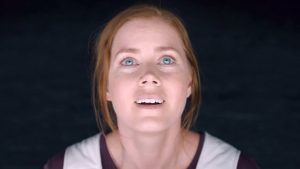 Leibniz argued that God’s obligation was to create a world with evil in it, particularly because a world that contains evil is a metaphysically richer one. Think about it: there are certain virtues that display themselves only as a specific response to evil; for example, the soldier that jumps on a grenade or the father who drowns in a flood to save his children. While the soldier and father’s death is tragic and a product of the evil that exists, their sacrifice would not exist were it not for the presence of evil acts. In other words, a world with no evil contains less virtue than a world with evil. This appears to be Louise’s position as well. Yes, Hannah will get sick, yes she will lose her hair from the chemo, and yes she will die in a hospital bed with her mother weeping over her. But Hannah will have opened her eyes to God’s beautiful creation. She will have experienced the sweet wonder and mystery of self-discovery. She will have experienced the freedom to obey God (or disobey). She will have experienced her mother’s love for her. She will have given her mother her own love in return. And because of that, Louise feels Hannah must exist so she can experience all of that, and so much more.
Leibniz argued that God’s obligation was to create a world with evil in it, particularly because a world that contains evil is a metaphysically richer one. Think about it: there are certain virtues that display themselves only as a specific response to evil; for example, the soldier that jumps on a grenade or the father who drowns in a flood to save his children. While the soldier and father’s death is tragic and a product of the evil that exists, their sacrifice would not exist were it not for the presence of evil acts. In other words, a world with no evil contains less virtue than a world with evil. This appears to be Louise’s position as well. Yes, Hannah will get sick, yes she will lose her hair from the chemo, and yes she will die in a hospital bed with her mother weeping over her. But Hannah will have opened her eyes to God’s beautiful creation. She will have experienced the sweet wonder and mystery of self-discovery. She will have experienced the freedom to obey God (or disobey). She will have experienced her mother’s love for her. She will have given her mother her own love in return. And because of that, Louise feels Hannah must exist so she can experience all of that, and so much more.
Perhaps this is also God’s purpose for suffering in our world. Perhaps the world He created, from beginning to end, is designed to show us the immeasurable glory that flourishes in the midst of pain and suffering, to show us what true love can do in the face of evil, particularly what true love did on the cross for us all.
Abortion – Gene
We’ve covered a lot of very philosophical and theologically heavy points thus far. I’d like to now turn to some very practical, real-life implications of the key decision by Louise. Allow me to lay out a scenario. A woman discovers she’s pregnant. While it wasn’t entirely planned, it’s something she welcomes and is happy about. Modern technology allows her to know a lot about the child in her womb, including future medical conditions they may face. Around the time she discovered she was having a girl, she is also told that her daughter will have an incurable disease that would take her life, likely sometime around puberty. The doctor then reveals that the nature of this illness is such that this death would be a long and painful one. “So the choice is yours”, says the doctor. “If you wanted to terminate the pregnancy, that option is still available.”
This scenario is unfortunately not so far from reality today. Except it isn’t usually a life-threatening disease. It’s prenatal diagnosis of Down Syndrome (DS). Many pro-life advocates site data from a 1999 European study indicating around 90% of preborn children diagnosed with DS are aborted, while more recent data which includes some U.S. numbers would indicate the number is at around 2 of every 3. Either way, we have an extra chromosome and the potential for a difficult life resulting in the death of thousands of children every year before they’re ever aloud to see the light of day. To me this sounds terrifying, and it’s with knowledge like this that I view Louise’s decision in the film to go down the path that led to her child.
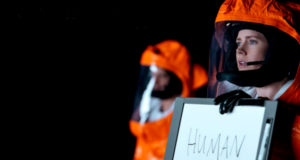 Louise wasn’t facing a handicap in her child, she was facing certain death by a terrible disease. The culture today would say if it causes pain and the child will die anyway, abortion is the humane choice. Why undergo such suffering and difficulty? We terminate unborn lives every day for less than that. Louise was in the middle of her career. She had plenty more to offer the world, and a sick child would have gotten in the way. With this choice from the lead actress, the film makes a statement about life, and what’s important. It’s saying that the love experienced through the joy of relationship and family is worth the suffering and difficulty. Even to the point of death. It’s such an emotionally driven aspect of the story, and is portrayed as such a loving choice, that it excels as an apologetic for the pro-life position in ways that arguments of logic or philosophical technicalities never could. It’s a pro-life apologetic through the power of story-telling.
Louise wasn’t facing a handicap in her child, she was facing certain death by a terrible disease. The culture today would say if it causes pain and the child will die anyway, abortion is the humane choice. Why undergo such suffering and difficulty? We terminate unborn lives every day for less than that. Louise was in the middle of her career. She had plenty more to offer the world, and a sick child would have gotten in the way. With this choice from the lead actress, the film makes a statement about life, and what’s important. It’s saying that the love experienced through the joy of relationship and family is worth the suffering and difficulty. Even to the point of death. It’s such an emotionally driven aspect of the story, and is portrayed as such a loving choice, that it excels as an apologetic for the pro-life position in ways that arguments of logic or philosophical technicalities never could. It’s a pro-life apologetic through the power of story-telling.
There is much more that could be said in regard to the importance of language and the human nature seen in the public reaction to the arrival of the aliens. Suffice it to say, even blockbusters from major Hollywood studios can’t help but reveal truths about life which God has revealed centuries ago.


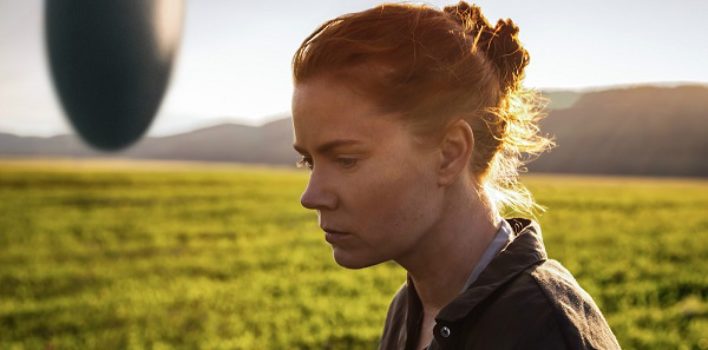
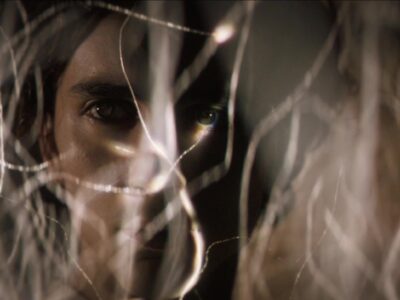
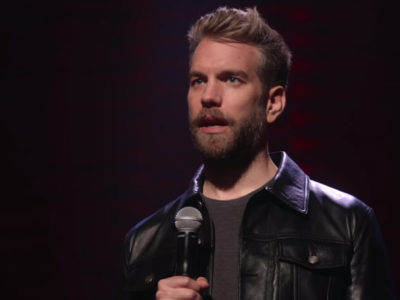
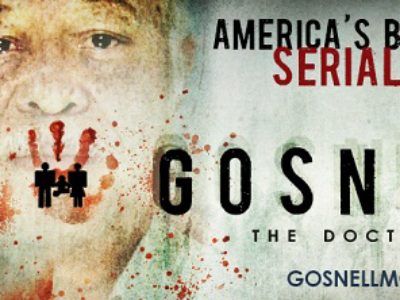


Pingback: #117 – Arrival and Considering God’s Perspective | Reel World Theology
Pingback: Arrival, and the Joy of the Known | Christian Entertainment Reviews